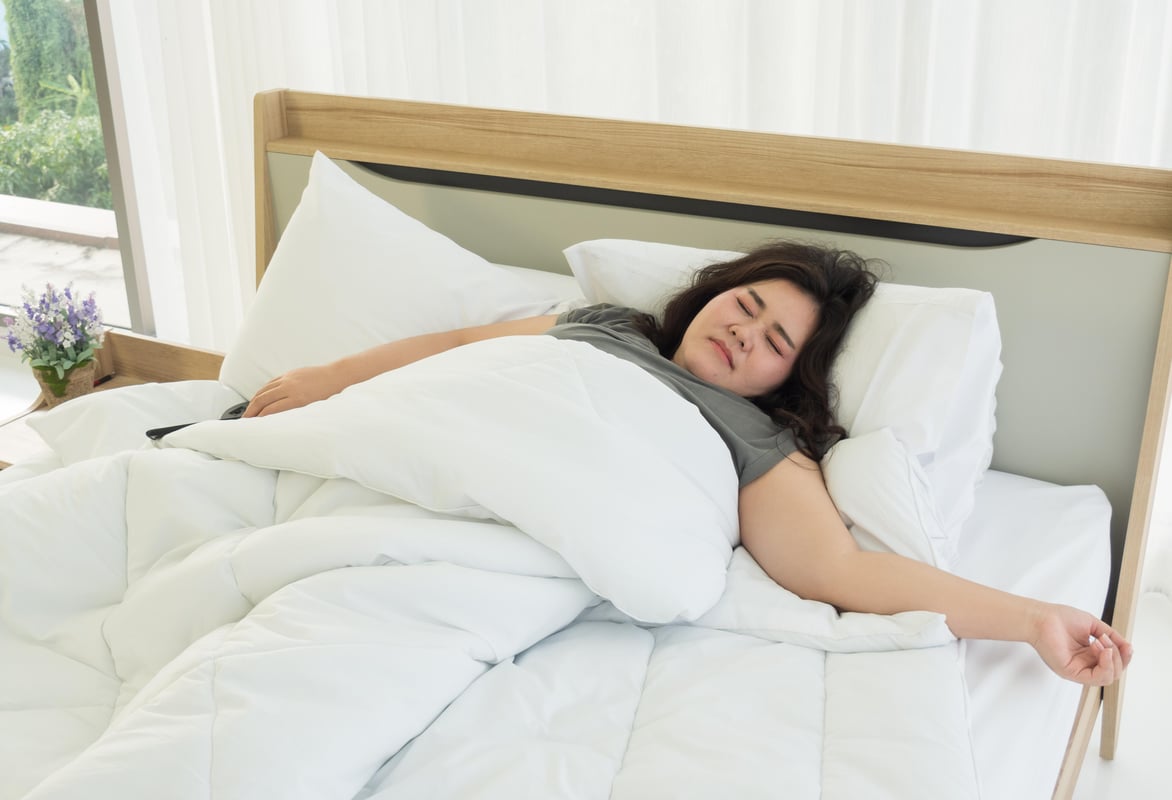Female Sex Hormones Tied to Sleep Apnea Symptoms in Women

WEDNESDAY, June 22, 2022 (HealthDay News) -- Middle-aged women with low serum estrogen and progesterone levels are more likely to snore and report symptoms of obstructive sleep apnea, according to a study published online June 22 in PLOS ONE.
Erla S. Sigurðardóttir, from the University of Iceland in Reykjavík, and colleagues assessed whether serum concentration of estrogens and progesterone are associated with the prevalence of sleep apnea symptoms in middle-aged women. The analysis included 774 women (aged 40 to 67 years) from seven European countries.
The researchers found that a doubling of serum concentrations of estrone and progesterone was associated with decreased odds of snoring (19 and 9 percent, respectively). A doubling of the concentrations of 17β-estradiol, estrone, and estrone 3-sulfate was associated with 18, 23, and 17 percent decreased odds, respectively, of breathing irregularly among snorers, while a doubling of the progesterone concentration was further associated with 12 percent decreased odds of waking up suddenly with a choking sensation.
"It is crucial to develop strategies to decrease the high prevalence and associated morbidity of obstructive sleep apnea and adjusting female sex hormones levels might be the key to accomplish this," the authors write.
Related Posts
Gabapentin May Cut Opioid Needs for Oral Mucositis Pain During RT
MONDAY, May 23, 2022 (HealthDay News) -- For patients receiving concurrent...
Los complementos de vitamina D no ayudan a prevenir la diabetes
JUEVES, 26 de mayo de 2022 (HealthDay News) -- Aunque la vitamina D quizá tenga...
Successful Intubations Up With Nasal High-Flow Therapy in Neonates
WEDNESDAY, April 27, 2022 (HealthDay News) -- For neonates undergoing...
Los implantes de metal podrían dañar la piel
VIERNES, 17 de marzo de 2023 (HealthDay News) -- A muchos pacientes les preocupa...
